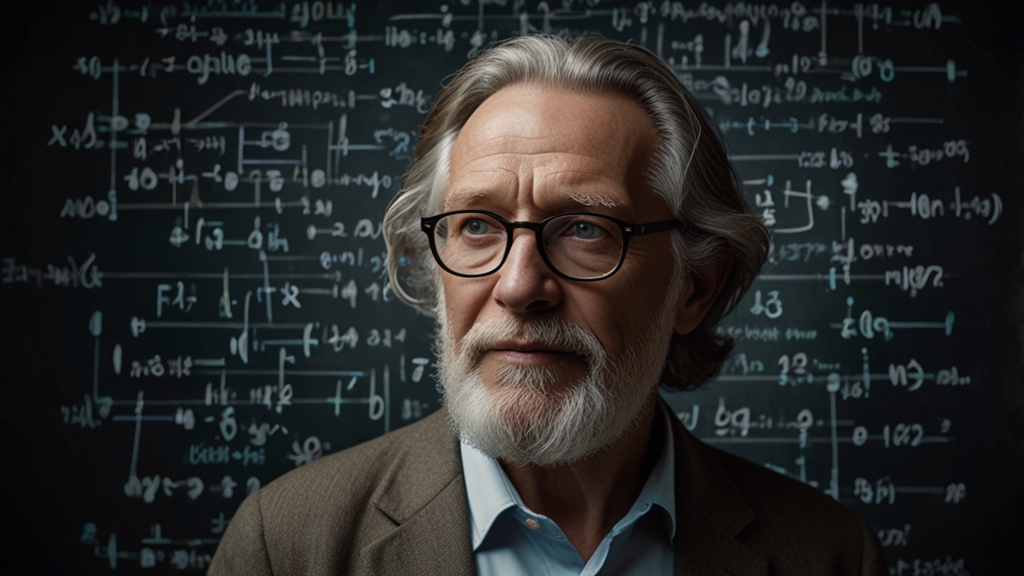Mathematics and Philosophy: Exploring the Nature of Reality
In the quest to understand the universe, two disciplines stand out for their abstract nature and profound impact on human thought: mathematics and philosophy. While seemingly distinct, these fields often intersect, offering unique insights into the fundamental nature of reality. This article delves into the intricate relationship between mathematics and philosophy, exploring how both contribute to our understanding of the world around us.
The Philosophical Foundation of Mathematics
Philosophy has long pondered the origins and essence of mathematical concepts. From the ancient Greeks to contemporary thinkers, philosophers have sought to unravel whether mathematics is a human invention or a discovery of universal truths. Plato, for instance, argued that mathematical forms exist in an abstract realm, independent of human minds, and that humans merely discover these eternal truths.
Contrasting with Plato's view, formalists like David Hilbert assert that mathematics is a creation of the human mind, primarily a set of symbols and rules crafted to describe relationships and solve problems. Meanwhile, intuitionists such as L.E.J. Brouwer contend that mathematics is a mental activity, grounded in the innate human intuition of numbers and structures.
"Mathematics is the language in which God has written the universe." — Galileo Galilei
Mathematical Structures and the Nature of Reality
Mathematics provides a powerful framework for describing the physical world, from the motion of planets to the behavior of subatomic particles. The predictive power and consistency of mathematical models suggest a deep connection between mathematics and the underlying fabric of reality. This raises a profound philosophical question: Is the universe inherently mathematical?
Mathematical physicist Max Tegmark posits a radical view known as the "Mathematical Universe Hypothesis," arguing that the universe itself is a mathematical structure. According to Tegmark, everything in the universe, including space, time, and matter, can be described purely in mathematical terms. Although this hypothesis remains speculative, it underscores the profound relationship between mathematics and the nature of reality.
Philosophical Implications of Mathematical Discoveries
Several mathematical discoveries have prompted significant philosophical inquiries. For example, Kurt Gödel's incompleteness theorems revealed inherent limitations in formal systems, showing that no set of axioms can fully capture all truths about arithmetic. This has philosophical implications, suggesting limits to human knowledge and raising questions about the nature of truth and proof.
Similarly, the development of non-Euclidean geometry in the 19th century shattered the long-held belief in the absolute nature of Euclidean geometry, prompting philosophers to reconsider the nature of space and the foundations of mathematical knowledge. Albert Einstein's theory of General Relativity, rooted in non-Euclidean geometry, further blurred the line between empirical science and mathematical abstraction, illustrating how mathematical concepts can reshape our understanding of reality.
"The power of mathematics rests on its evasion of all unnecessary thought and on its wonderful saving of mental operations." — Ernst Mach
Ethical and Ontological Questions
The intersection of mathematics and philosophy also extends to ethical and ontological questions. Philosophers debate whether mathematical entities, such as numbers and sets, possess any form of existence outside the human mind. This debate between realism and anti-realism in mathematics has significant implications for our conception of reality and the nature of existence.
Moreover, the ethical dimensions of mathematical applications, particularly in technology and artificial intelligence, pose challenging questions. The use of algorithms in decision-making, for instance, brings forth issues of fairness, accountability, and transparency. Philosophers and mathematicians alike must grapple with these ethical implications, ensuring that mathematical advancements contribute to the betterment of society.
Conclusion
In conclusion, the interplay between mathematics and philosophy offers profound insights into the nature of reality. Whether mathematics reflects universal truths, serves as a human construct, or constitutes the very fabric of the universe, it undeniably shapes our understanding of the world. As we continue to explore these interwoven disciplines, we uncover deeper layers of existence, enriching our quest for knowledge and meaning.







